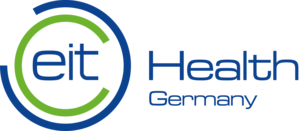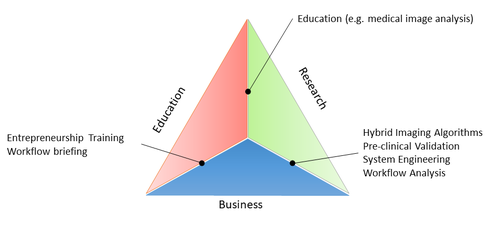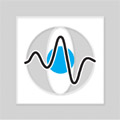Predictive Prevention and Personalized Interventional Stroke Therapy - P3-Stroke
P3-Stroke is an innovation project supported by EIT Health, a network of best-in-class health innovators that collaborates across borders and delivers solutions to enable European citizens to live longer, healthier lives. EIT Health is supported by the EIT, a body of the European Union. (eithealth.eu)
![]()

Collaborative medical imaging project led by FAU and Universitätsklinikum Erlangen granted funding by EIT Health
December 12, 2016
FAU has demonstrated its strength in research once again: the University is conducting a new research project together with Siemens Healthcare GmbH, Universitätsklinikum Erlangen and other European partners in which researchers will develop an innovative hybrid device that combines different medical imaging technologies and will help stroke patients in particular to receive quicker diagnosis and treatment.
The project is being funded by the European Institute of Innovation and Technology for Health (EIT Health), a publicly financed initiative that aims to ensure sustainable development of innovative health care solutions. The project ‘Predictive Prevention and Personalized Interventional Stroke Therapy – P3 Stroke’ is one of only two in Germany and eight in Europe to receive funding.
EIT Health connects successful regional clusters with international networks of excellent universities, institutes, university hospitals and commercial research centres through the European research and innovation framework programme Horizon 2020. Over 140 companies, research institutions and universities from across Europe collaborate on a diverse range of projects as part of EIT Health; FAU and Siemens Healthineers are among the key partners.
The initiative will receive around 80 million euros of annual funding over the next seven years. Thanks to these resources, EIT Health is able to develop innovative products, educational programmes and services that will help Europe to deal with the challenges of demographic change.
To receive sought-after funding from EIT Health, a group of partners must submit a high-quality project. Prof. Dr. Dr. Jürgen Schüttler, Dean of FAU’s Faculty of Medicine, is delighted that this was achieved with the P3 Stroke project: ‘The project strengthens the connection between the University, Universitätsklinikum Erlangen and partners in industry such as Siemens Healthineers, a collaboration that meets the highest standards in Europe.’
Time is brain – faster treatment for stroke patients
‘With the P3 Stroke project we want to improve the diagnosis and interventional treatment of strokes on a fundamental level by combining the use of magnetic resonance imaging and angiography,’ explains Dr. Heinrich Kolem, CEO of Advanced Therapies at Siemens Healthineers.
Conducting separate examinations using different devices takes time, particularly due to the need to transfer patients between locations. This is valuable time that stroke patients do not have. As an average of 2 million neurons are destroyed every minute, every minutes counts during efforts to prevent major damage after a stroke. In collaboration with Siemens Healthineers, the team of researchers led by Prof. Dr. Arnd Dörfler, head of the Department of Neuroradiology at Universitätsklinikum Erlangen, and Prof. Dr. Andreas Maier, head of the Pattern Recognition Lab at FAU, now want to combine two imaging techniques, magnetic resonance imaging and angiography. This innovative approach will be used for diagnosis and immediate treatment, reducing the time needed for patient transfers and saving valuable time when treating stroke patients.
‘The pioneering system enables an exact picture of the development of the condition to be obtained without delay, allowing for effective treatment,’ Professor Dörfler says. While the clinical evaluation of the new methods will be led by the Department of Neuroradiology at Universitätsklinikum Erlangen in close collaboration with the Department of Neurology, the Pattern Recognition Lab is responsible for developing the software: ‘We have been conducting research in various areas of medical imaging for many years and can therefore contribute a considerable amount of expertise,’ Professor Maier explains.
Although the researchers see stroke patients as the main group who will benefit from the new technology, this does not mean that it will be limited to this area. ‘The system will also have applications in minimally invasive treatment for other neuro- and cardiovascular disorders and in oncology,’ Professor Dörfler says optimistically.
For Dr. Simone Reiprich, director of FAU’s Central Institute of Healthcare Engineering (ZiMT) and the University’s official representative in EIT Health’s international Partner Assembly, and Dr. Kurt Höller, director of Business Creation and a member of EIT Health’s Management Board, the fact that funding has been awarded for the project is further proof of the region’s significance in the field of medical technology: ‘The projects that EIT Health awards funding to are highly innovative and involve a high level of scientific expertise. Receiving this funding amid high competition is therefore a great success.’

P3-Stroke is an EIT sponsored project and designed around the principle of the 'knowledge triangle'.
What is it?
The contribution of higher education to jobs and growth, and its international attractiveness, can be enhanced through close, effective links between education, research, and innovation – the three sides of the ‘knowledge triangle’.
Why is it needed?
Despite excellent research, education, and inventions, Europe faces difficulties in fully capitalising on its innovation potential. Fragmented systems, a weak entrepreneurial culture, and limited cooperation between higher education, research, business, and innovation organisations hinder Europe’s ability to compete in research and innovation at a global level.
ec.europa.eu/education/policy/higher-education/knowledge-innovation-triangle_en
We are proud to offer three new free online courses in terms of the P3-Stroke project.
X-Ray Image Formation and Radiation Protection
Guest Lecture given by Graciano Paolo from Coimbra Health School/Escola Superior de Tecnologia da Saúde de Coimbra. The class deals with basics of X-ray generation and image formation with a particular focus on dose awareness and radiation protection.
Interventional Medical Image Processing
This lecture focuses on recent developments in image processing driven by medical applications. All algorithms are motivated by practical problems. The mathematical tools required to solve the considered image processing tasks will be introduced.
In addition to the lectures, we also offer exercise classes. The exercises consist of theoretical parts where you immerse in lecture topics. But we also set emphasis on the practical implementation of the methods.
Medical Image Processing for Diagnostic Applications
In this course you will learn about the different modalities in medical image processing, learn the necessity of image preprocessing specific to the acquisition type, you will engage yourself in fundamentals and algorithmic details of the 3D-reconstruction, and get to know several options for image registration in all their mathematical beauty.


 +49-9131-85-27775
+49-9131-85-27775
 +49-9131-85-27270
+49-9131-85-27270
